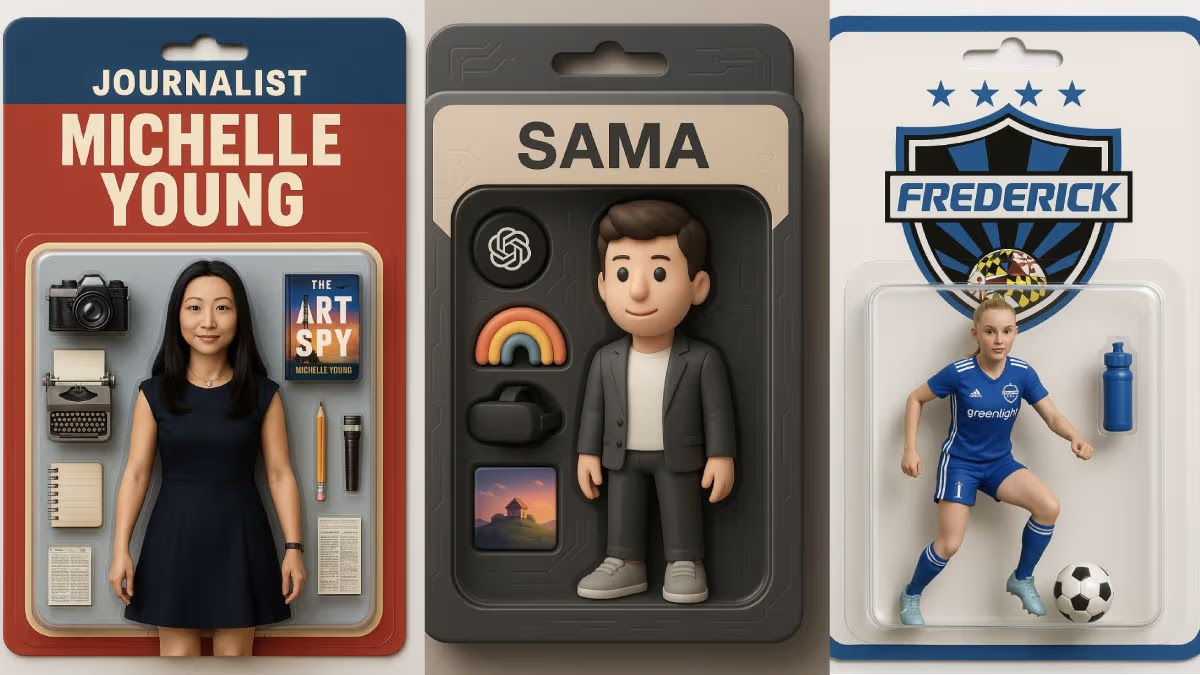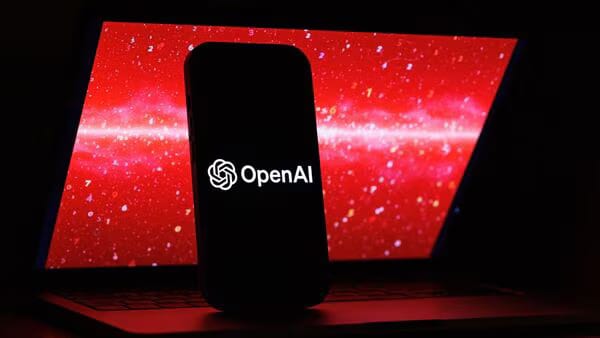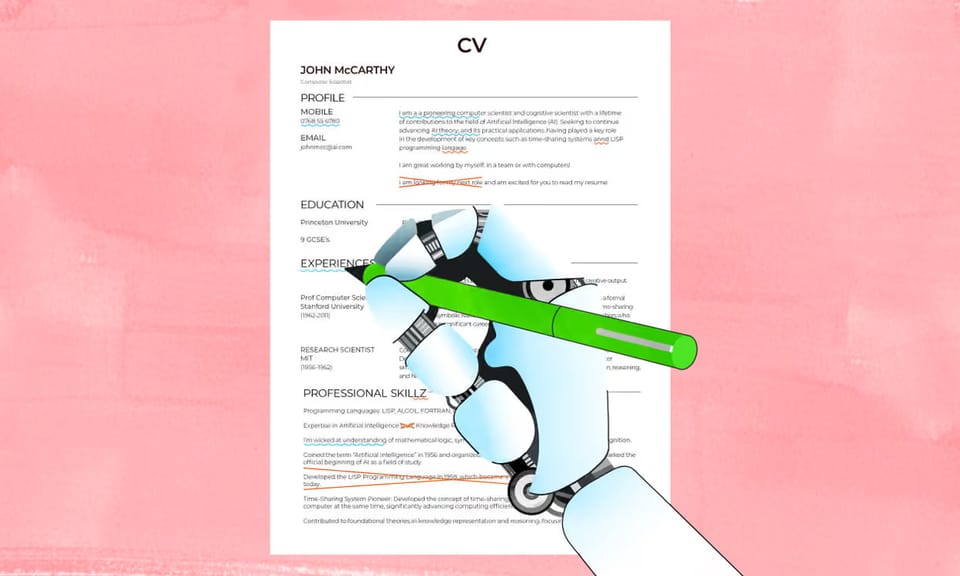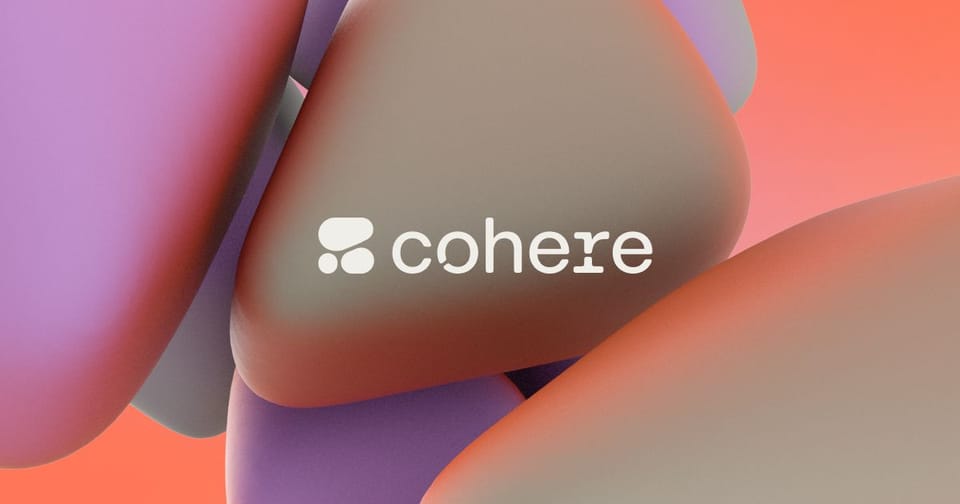Are We Turning Ourselves Into Toys Now?


Hey there, financial wizards, tech rebels, beauty queens, and future action figures.
We’ve got AI saving lives, draining wallets, and turning humans into collectibles this week.
Buckle up, it’s a wild ride!
Business & Finance
Meet Your New (Free) Financial Advisor

Briefing: Struggling with budgets, savings, and wondering if you can retire before 92? Good news: Generative AI is crashing the personal finance party. According to Britannica, tools like ChatGPT and Gemini are now moonlighting as financial advisors, minus the $300/hour consultation fees.
Details: AI can whip up a personalized budget, build a 30-year retirement plan, explain what the heck a "401(k)" even is, and even gamify your debt nightmares into cute little quizzes. It can also simulate debt repayment strategies because nothing says "fun" like watching an AI tell you how broke you’ll stay if you keep ignoring your credit card bill. Of course, a tiny disclaimer: AI sometimes makes stuff up, so maybe double-check before handing over your life savings.
Why it Matters: AI isn’t just eating your job, it's also coming for your wallet (in a good way, supposedly). If used wisely (read, don't just blindly trust a chatbot with your mortgage), it could finally make personal finance slightly less depressing. Just remember: your AI buddy won’t hold your hand when you panic-sell your stocks during the next recession. (Britannica Money)
Tech
Stop Regulating Our Robots!

Briefing: The Trump administration is now begging Europe to ditch its shiny new AI rulebook. Apparently, asking AI companies to be transparent and play fair is a bridge too far, especially when Big Tech’s feelings (and wallets) are involved.
Details: The EU is trying to slap some basic ground rules on AI, like don’t be sketchy and maybe respect copyright. Trump’s team, however, is throwing a diplomatic tantrum, claiming these rules will "cripple innovation." Translation: “Our tech giants might actually have to try harder.” Meanwhile, Europe’s response has been a polite but firm nope.
Why it Matters: This little tug-of-war shows just how differently the U.S. and EU view tech: America says "move fast and break things," while Europe says "move slow and please don't break democracy." If Trump wins this round, expect even fewer brakes on AI chaos. If Europe holds the line, Big Tech may finally have to read a rulebook... or at least pretend to. (Bloomberg)
Entertainment
Art Attack at Oakland First Fridays

Briefing: Oakland First Fridays, the beloved monthly street festival, thought that promoting their April event with an AI-generated flyer would be a fabulous idea. Shockingly (to absolutely no one), local artists and the internet at large were not amused.
Details: They posted the flyer (a cheery AI street scene) on Instagram, hoping to "Spring Into Action." Instead, they sprang straight into controversy. Artists pointed out that the festival’s entire purpose is to support real, breathing creatives. The organizers blamed “budget issues” and “small team energy,” but later admitted it was mostly just “creative experimentation.” Translation: We got bored and asked Midjourney to do it. In a scramble to save face, they promised to keep supporting local artists with free booths and flyer submissions moving forward. Phew.
Why it Matters: When even an art festival uses AI over human artists, it kinda screams "We live in a simulation!" Also, it's another reminder that while AI can whip up a flyer in 30 seconds, it can't replace the soul, chaos, and questionable fashion choices that real artists bring to the table. (SF Chronicle)
Beauty
Sephora’s Glow-Up

Briefing: While the rest of us are still figuring out how to unmute on Zoom, Sephora has been busy turning into a full-on beauty-tech overlord. Since 2013, they've been sprinkling AI and AR magic everywhere, making it easier to try on lipstick without looking like you lost a fight with a crayon.
Details: Sephora’s tech army includes a Virtual Artist (try on makeup without the human shame), a Fragrance IQ system (smell perfumes without smelling like 10 department store samples), and Pantone Color IQ (finally, a computer that knows you’re not “beige," you’re “sun-kissed caramel”). They’re using AI to stalk your beauty habits (lovingly, of course) and personalize everything from loyalty perks to “how not to contour like a YouTube fail” tutorials.
Why it Matters: Sephora basically proved that if you combine skincare with Skynet, people will throw their wallets at you. Every beauty brand still handing out crumpled paper coupons should either start hiring robots or prepare to be left in Sephora’s pixelated dust. Glow smarter, not harder. (Simplilearn)
Social
Are We Turning Ourselves Into Toys Now?

Briefing: Tired of being a boring human? Good news: The internet has decided we should all become action figures. Thanks to the "ChatGPT Box Doll" trend, you can now live your dream of being an action figure.
Details: Here's how it works: you upload your photo to ChatGPT (preferably one where you don't look like you just survived 2020), give it a prompt like "make me a badass coder doll with a laptop and emotional baggage," and voilà: you're now a collectible. Everyone from TikTok teens to LinkedIn try-hards are proudly sharing their AI-generated selves, boxed up like a midlife crisis you can gift-wrap. Oh, and if you thought privacy or environmental guilt might slow this down, yeah, no. We’re too busy living our Barbie dreams.
Why it Matters: It’s official: humanity has peaked. We’re using advanced AI not to cure diseases or save the planet, but to Photoshop ourselves into plastic dolls. While it’s hilarious and adorable, maybe, just maybe, double-check where your photos are going before you hand over your soul (and face) to the algorithm gods. (91Mobiles)
Health
Mom of Two Credits ChatGPT with Saving Her Life

Briefing: Move over, Dr. House; ChatGPT is apparently diagnosing cancer now. A mom of two says AI caught her thyroid cancer before a parade of actual human doctors could. Reminder: the chatbot you asked for cookie recipes just saved a life.
Details: Lauren Bannon spent months being told her stiff fingers and stomach pain were just “vibes” (aka arthritis or acid reflux). Frustrated, she asked ChatGPT. And boom, it suggested thyroid issues. After insisting on tests, her real doctors shrugged off, she found out she had cancer. Moral of the story: always trust your gut... or your chatbot.
Why it Matters: This isn’t just a flex for AI, it’s a flashing neon sign that patients need to push harder when something feels off. Also, maybe schedule your second opinions with ChatGPT between doctor visits? Just don't ask it to perform surgery. Yet. (NY Post)
Finding this informative? Share. Didn't like it? Feel free to unsub.
Don't want to miss any of our emails? Add us to your contacts: newsletter@tomorrowsbriefing.news




